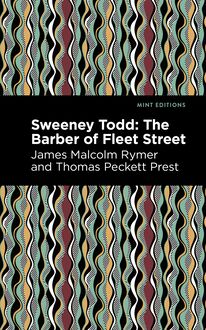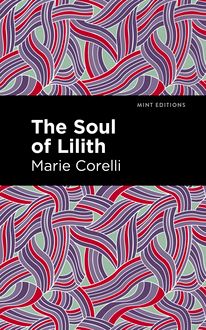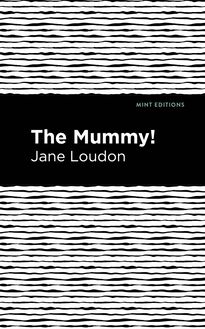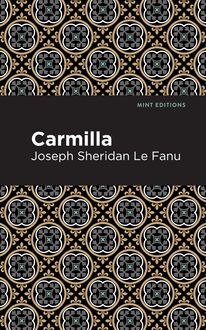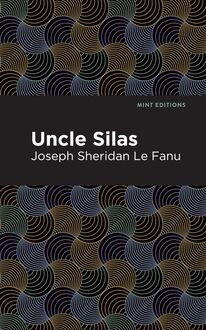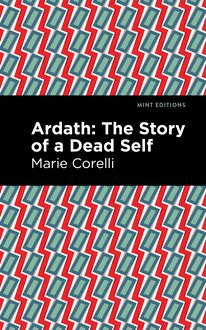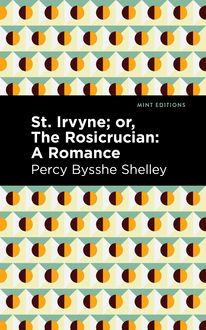-
 Univers
Univers
-
 Ebooks
Ebooks
-
 Livres audio
Livres audio
-
 Presse
Presse
-
 Podcasts
Podcasts
-
 BD
BD
-
 Documents
Documents
-
- Cours
- Révisions
- Ressources pédagogiques
- Sciences de l’éducation
- Manuels scolaires
- Langues
- Travaux de classe
- Annales de BEP
- Etudes supérieures
- Maternelle et primaire
- Fiches de lecture
- Orientation scolaire
- Méthodologie
- Corrigés de devoir
- Annales d’examens et concours
- Annales du bac
- Annales du brevet
- Rapports de stage
La lecture à portée de main
Vous pourrez modifier la taille du texte de cet ouvrage
Découvre YouScribe en t'inscrivant gratuitement
Je m'inscrisDécouvre YouScribe en t'inscrivant gratuitement
Je m'inscrisEn savoir plus
Vous pourrez modifier la taille du texte de cet ouvrage
En savoir plus

Description
A house seemingly disconnected in time and space becomes the setting for brutal conflict between the hapless homeowner and a collection of grotesque semi-human creatures in this landmark of fantasy and horror.
The House on the Borderland is the account of a man, known only as the recluse, who moves into a remote and shunned house and unwittingly finds himself suspended between worlds, traveling through time, and fighting for his life against a siege of misshapen monstrosities. The author’s sweeping imagination evokes a wide variety of fantastical effects, from eerie intimations of the weird to vivid manifestations of supernatural horror, from fabulous glimpses of otherworldly landscapes to direct combat with non-human assailants of murderous intent. First published in 1908, the novel quickly acquired a reputation as a rare and visionary example of cosmic horror that would influence and draw praise from H.P. Lovecraft, Clark Ashton Smith, Olaf Stapleton and others. As gripping and surreal as a fever dream, The House on the Borderland remains one of the most transporting destinations in literature.
With an eye-catching new cover, and professionally typeset manuscript, this edition of The House on the Borderland is both modern and readable.
Sujets
Informations
| Publié par | Mint Editions |
| Date de parution | 17 novembre 2020 |
| Nombre de lectures | 0 |
| EAN13 | 9781513267036 |
| Langue | English |
| Poids de l'ouvrage | 1 Mo |
Informations légales : prix de location à la page 0,0400€. Cette information est donnée uniquement à titre indicatif conformément à la législation en vigueur.
Extrait
The House on the Borderland
William Hope Hodgson
The House on the Borderland was first published in 1908.
This edition published by Mint Editions 2020.
ISBN 9781513266596 | E-ISBN 9781513267036
Published by Mint Editions®
minteditionbooks .com
Publishing Director: Jennifer Newens
Project Manager: Gabrielle Maudiere
Design & Production: Rachel Lopez Metzger
Typesetting: Westchester Publishing Services
T O M Y F ATHER
(Whose feet tread the lost aeons)
Open the door,
And listen!
Only the wind’s muffled roar,
And the glisten
Of tears ’round the moon.
And, in fancy, the tread
Of vanishing shoon—
Out in the night with the Dead.
“Hush! And hark
To the sorrowful cry
Of the wind in the dark.
Hush and hark, without murmur or sigh,
To shoon that tread the lost aeons:
To the sound that bids you to die.
Hush and hark! Hush and Hark!”
Shoon of the Dead
C ONTENTS A UTHOR ’ S I NTRODUCTION TO THE M ANUSCRIPT I. T HE F INDING OF THE M ANUSCRIPT II. T HE P LAIN OF S ILENCE III. T HE H OUSE IN THE A RENA IV. T HE E ARTH V. T HE T HING IN THE P IT VI. T HE S WINE -T HINGS VII. T HE A TTACK VIII. A FTER THE A TTACK IX. I N THE C ELLARS X. T HE T IME OF W AITING XI. T HE S EARCHING OF THE G ARDENS XII. T HE S UBTERRANEAN P IT XIII. T HE T RAP IN THE G REAT C ELLAR XIV. T HE S EA OF S LEEP XV. T HE N OISE IN THE N IGHT XVI. T HE A WAKENING XVII. T HE S LOWING R OTATION XVIII. T HE G REEN S TAR XIX. T HE E ND OF THE S OLAR S YSTEM XX. T HE C ELESTIAL G LOBES XXI. T HE D ARK S UN XXII. T HE D ARK N EBULA XXIII. P EPPER XXIV. T HE F OOTSTEPS IN THE G ARDEN XXV. T HE T HING FROM THE A RENA XXVI. T HE L UMINOUS S PECK XXVII. C ONCLUSION
A UTHOR ’ S I NTRODUCTION TO THE M ANUSCRIPT
M any are the hours in which I have pondered upon the story that is set forth in the following pages. I trust that my instincts are not awry when they prompt me to leave the account, in simplicity, as it was handed to me.
And the MS. itself—You must picture me, when first it was given into my care, turning it over, curiously, and making a swift, jerky examination. A small book it is; but thick, and all, save the last few pages, filled with a quaint but legible handwriting, and writ very close. I have the queer, faint, pit-water smell of it in my nostrils now as I write, and my fingers have subconscious memories of the soft, “cloggy” feel of the long-damp pages.
I read, and, in reading, lifted the Curtains of the Impossible that blind the mind, and looked out into the unknown. Amid stiff, abrupt sentences I wandered; and, presently, I had no fault to charge against their abrupt tellings; for, better far than my own ambitious phrasing, is this mutilated story capable of bringing home all that the old Recluse, of the vanished house, had striven to tell.
Of the simple, stiffly given account of weird and extraordinary matters, I will say little. It lies before you. The inner story must be uncovered, personally, by each reader, according to ability and desire. And even should any fail to see, as now I see, the shadowed picture and conception of that to which one may well give the accepted titles of Heaven and Hell; yet can I promise certain thrills, merely taking the story as a story.
W ILLIAM H OPE H ODGSON, December 17, 1907
I
T HE F INDING OF THE M ANUSCRIPT
R ight away in the west of Ireland lies a tiny hamlet called Kraighten. It is situated, alone, at the base of a low hill. Far around there spreads a waste of bleak and totally inhospitable country; where, here and there at great intervals, one may come upon the ruins of some long desolate cottage—unthatched and stark. The whole land is bare and unpeopled, the very earth scarcely covering the rock that lies beneath it, and with which the country abounds, in places rising out of the soil in wave-shaped ridges.
Yet, in spite of its desolation, my friend Tonnison and I had elected to spend our vacation there. He had stumbled on the place by mere chance the year previously, during the course of a long walking tour, and discovered the possibilities for the angler in a small and unnamed river that runs past the outskirts of the little village.
I have said that the river is without name; I may add that no map that I have hitherto consulted has shown either village or stream. They seem to have entirely escaped observation: indeed, they might never exist for all that the average guide tells one. Possibly this can be partly accounted for by the fact that the nearest railway station (Ardrahan) is some forty miles distant.
It was early one warm evening when my friend and I arrived in Kraighten. We had reached Ardrahan the previous night, sleeping there in rooms hired at the village post office, and leaving in good time on the following morning, clinging insecurely to one of the typical jaunting cars.
It had taken us all day to accomplish our journey over some of the roughest tracks imaginable, with the result that we were thoroughly tired and somewhat bad tempered. However, the tent had to be erected and our goods stowed away before we could think of food or rest. And so we set to work, with the aid of our driver, and soon had the tent up upon a small patch of ground just outside the little village, and quite near to the river.
Then, having stored all our belongings, we dismissed the driver, as he had to make his way back as speedily as possible, and told him to come across to us at the end of a fortnight. We had brought sufficient provisions to last us for that space of time, and water we could get from the stream. Fuel we did not need, as we had included a small oil-stove among our outfit, and the weather was fine and warm.
It was Tonnison’s idea to camp out instead of getting lodgings in one of the cottages. As he put it, there was no joke in sleeping in a room with a numerous family of healthy Irish in one corner and the pigsty in the other, while overhead a ragged colony of roosting fowls distributed their blessings impartially, and the whole place so full of peat smoke that it made a fellow sneeze his head off just to put it inside the doorway.
Tonnison had got the stove lit now and was busy cutting slices of bacon into the frying pan; so I took the kettle and walked down to the river for water. On the way, I had to pass close to a little group of the village people, who eyed me curiously, but not in any unfriendly manner, though none of them ventured a word.
As I returned with my kettle filled, I went up to them and, after a friendly nod, to which they replied in like manner, I asked them casually about the fishing; but, instead of answering, they just shook their heads silently, and stared at me. I repeated the question, addressing more particularly a great, gaunt fellow at my elbow; yet again I received no answer. Then the man turned to a comrade and said something rapidly in a language that I did not understand; and, at once, the whole crowd of them fell to jabbering in what, after a few moments, I guessed to be pure Irish. At the same time they cast many glances in my direction. For a minute, perhaps, they spoke among themselves thus; then the man I had addressed faced ’round at me and said something. By the expression of his face I guessed that he, in turn, was questioning me; but now I had to shake my head, and indicate that I did not comprehend what it was they wanted to know; and so we stood looking at one another, until I heard Tonnison calling to me to hurry up with the kettle. Then, with a smile and a nod, I left them, and all in the little crowd smiled and nodded in return, though their faces still betrayed their puzzlement.
It was evident, I reflected as I went toward the tent, that the inhabitants of these few huts in the wilderness did not know a word of English; and when I told Tonnison, he remarked that he was aware of the fact, and, more, that it was not at all uncommon in that part of the country, where the people often lived and died in their isolated hamlets without ever coming in contact with the outside world.
“I wish we had got the driver to interpret for us before he left,” I remarked, as we sat down to our meal. “It seems so strange for the people of this place not even to know what we’ve come for.”
Tonnison grunted an assent, and thereafter was silent for a while.
Later, having satisfied our appetites somewhat, we began to talk, laying our plans for the morrow; then, after a smoke, we closed the flap of the tent, and prepared to turn in.
“I suppose there’s no chance of those fellows outside taking anything?” I asked, as we rolled ourselves in our blankets.
Tonnison said that he did not think so, at least while we were about; and, as he went on to explain, we could lock up everything, except the tent, in the big chest that we had brought to hold our provisions. I agreed to this, and soon we were both asleep.
Next morning, early, we rose and went for a swim in the river; after which we dressed and had breakfast. Then we roused out our fishing tackle and overhauled it, by which time, our breakfasts having settled somewhat, we made all secure within the tent and strode off in the direction my friend had explored on his previous visit.
During the day we fished happily, working steadily upstream, and by evening we had one of the prettiest creels of fish that I had seen for a long while. Returning to the village, we made a good feed off our day’s spoil, after which, having selected a few of the finer fish for our breakfast, we presented the remainder to the group of villagers who had assembled at a respectful distance to watch our doings. They seemed wonderfully grateful, and heaped mountains of what I presumed to be Irish blessings upon our heads.
Thus we spent several days, having splendid sport, and first-rate appetites to do justice upon our prey. We were pleased to find how friendly the villagers were inclined to be, and that there was no evidence of their having ventured to meddle with ou
-
 Univers
Univers
-
 Ebooks
Ebooks
-
 Livres audio
Livres audio
-
 Presse
Presse
-
 Podcasts
Podcasts
-
 BD
BD
-
 Documents
Documents
-
Jeunesse
-
Littérature
-
Ressources professionnelles
-
Santé et bien-être
-
Savoirs
-
Education
-
Loisirs et hobbies
-
Art, musique et cinéma
-
Actualité et débat de société
-
Jeunesse
-
Littérature
-
Ressources professionnelles
-
Santé et bien-être
-
Savoirs
-
Education
-
Loisirs et hobbies
-
Art, musique et cinéma
-
Actualité et débat de société
-
Actualités
-
Lifestyle
-
Presse jeunesse
-
Presse professionnelle
-
Pratique
-
Presse sportive
-
Presse internationale
-
Culture & Médias
-
Action et Aventures
-
Science-fiction et Fantasy
-
Société
-
Jeunesse
-
Littérature
-
Ressources professionnelles
-
Santé et bien-être
-
Savoirs
-
Education
-
Loisirs et hobbies
-
Art, musique et cinéma
-
Actualité et débat de société
- Cours
- Révisions
- Ressources pédagogiques
- Sciences de l’éducation
- Manuels scolaires
- Langues
- Travaux de classe
- Annales de BEP
- Etudes supérieures
- Maternelle et primaire
- Fiches de lecture
- Orientation scolaire
- Méthodologie
- Corrigés de devoir
- Annales d’examens et concours
- Annales du bac
- Annales du brevet
- Rapports de stage
